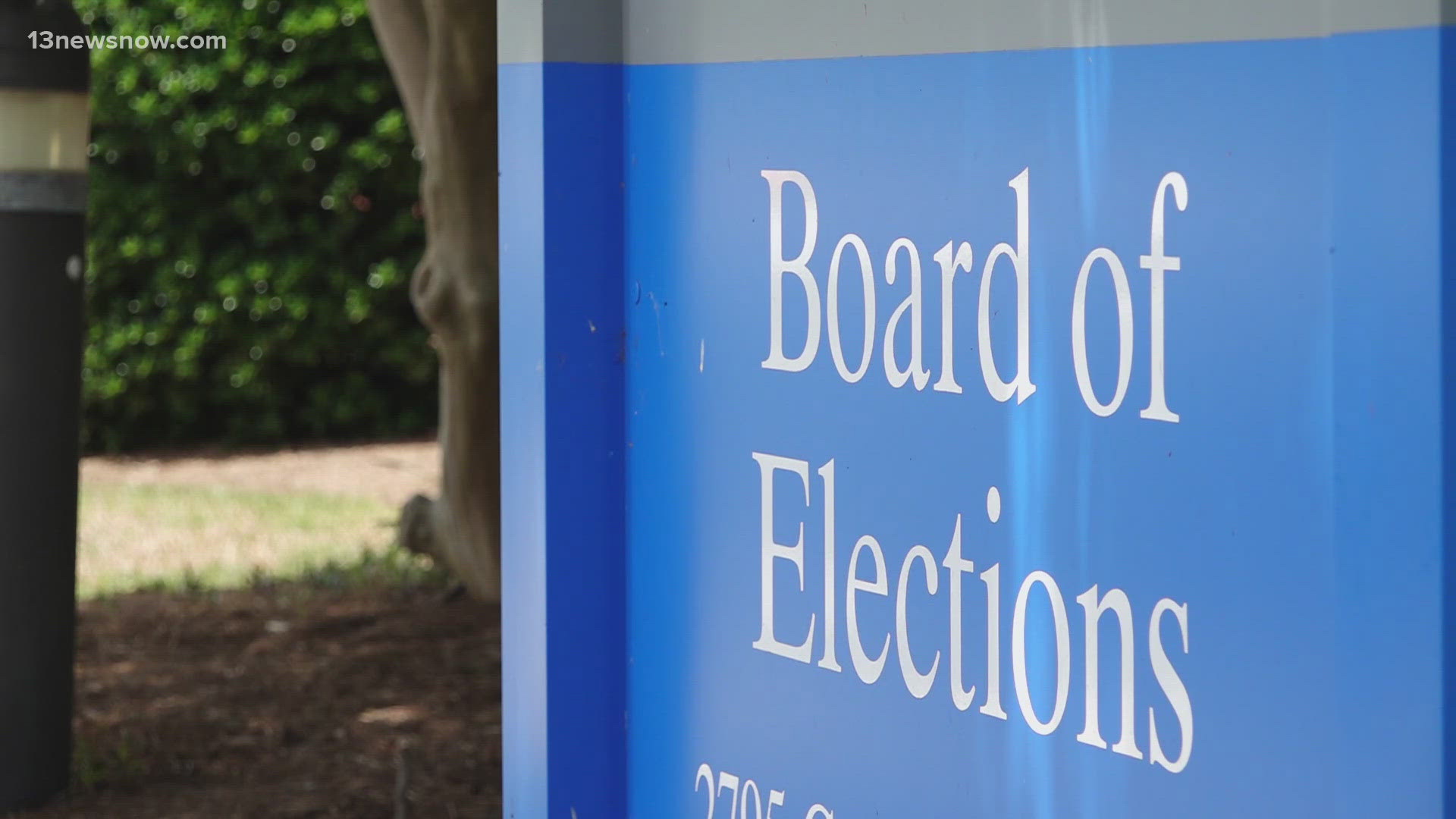CURRITUCK, N.C. — North Carolina voters will again head to the voting booths, two months after Super Tuesday still left two races in the Tar Heel State undecided.
And in the state's more rural communities like Currituck County, the possibility of low voter turnout doesn’t change the job of elections workers like Kimberly Twine.
"They [voters] are like well this isn’t important. Well, top of the ticket is the Lieutenant Governor, and in perspective that’s like the vice president you know? That’s the second in command," she says.
Twine, the Director of Elections for Currituck County, has found that many of the 24,000 registered county voters are unaware of the second primary race Tuesday to decide statewide Republican nominations for Lieutenant Governor and the NC Auditor.
In both races, none of the combined 17 candidates broke the 30% threshold of the vote needed.
In Currituck County, Twine says all 11 of the county's voting precincts will remain open to avoid voter confusion on election day itself.
"No changes were made for this second primary, and we were give the option to consolidate given the expected low turnout. But to not cause confusion, we decided to keep all 11 open," she says.
In the early voting window leading up to Tuesday's runoffs, just 0.7% of the registered voters in North Carolina submitted a ballot for this election.
Who's on the May 2024 North Carolina primary ballot?
The lieutenant governor's GOP runoff is between Hal Weatherman and Jim O’Neill, while the nomination for state auditor is between Jack Clark and Dave Boliek. The winners will face Democratic rivals — and in some cases Libertarian Party candidates — in November's general election.
Additionally, there is a Republican runoff election in the 13th Congressional District between Kelly Daughtry and Brad Knott. However, Daughtry suspended her campaign on May 2. She will remain an official candidate and her name will remain on the ballot, suspending the campaign.
These GOP primary runoffs are open to all registered Republicans in the state, or in the case of the congressional race, registered Republicans within the 13th District.
Unaffiliated voters who either didn’t vote or voted Republican in the March primaries also can participate, the State Board of Elections said in a news release.
Voter ID rules
People will be asked to show a photo ID when voting in North Carolina, but all voters can vote without one, according to the North Carolina State Board of Elections.
If a voter can't show a photo ID when voting in person, they can still vote by filling out an ID exception form. If absentee-by-mail voters can't include a copy of their photo ID with a ballot return envelope, they can fill out an ID exception form with their ballot.
Acceptable types of photo IDs include a North Carolina driver’s license, U.S. passport and college or university student ID. People can also get a free ID card from their county board of elections or the North Carolina Division of Motor Vehicles.
North Carolina voter registration: How to check your status
The North Carolina State Board of Elections has a voter search tool that includes voting jurisdictions, polling places, sample ballots when available, absentee ballot information and voter history.
Where do I vote? Here's how to find your polling location in North Carolina
To find where to vote in North Carolina, use the North Carolina State Board of Elections' polling place search tool. It will ask for your residential address, city, state, and ZIP code.
Where to find sample ballots
Use the North Carolina State Board of Elections voter search tool that includes voting jurisdictions, polling places, sample ballots when available, absentee ballot information, and voter history.

